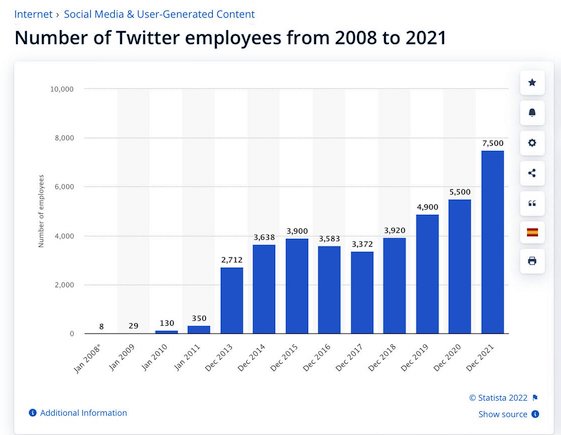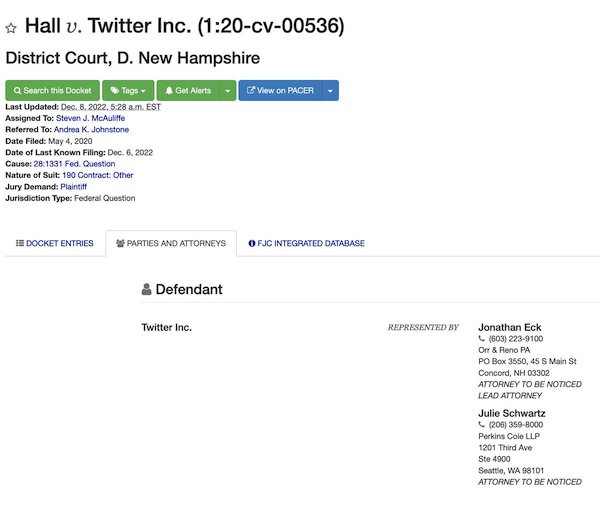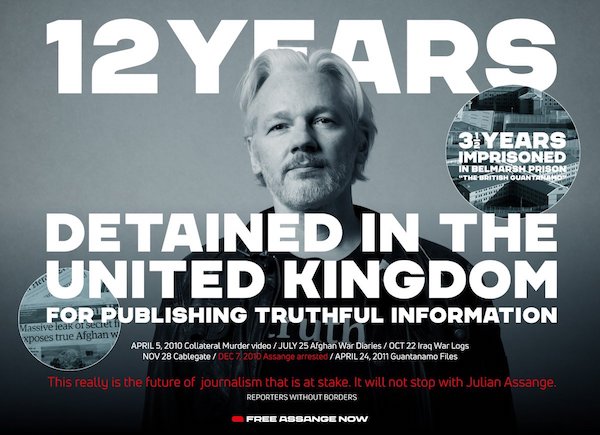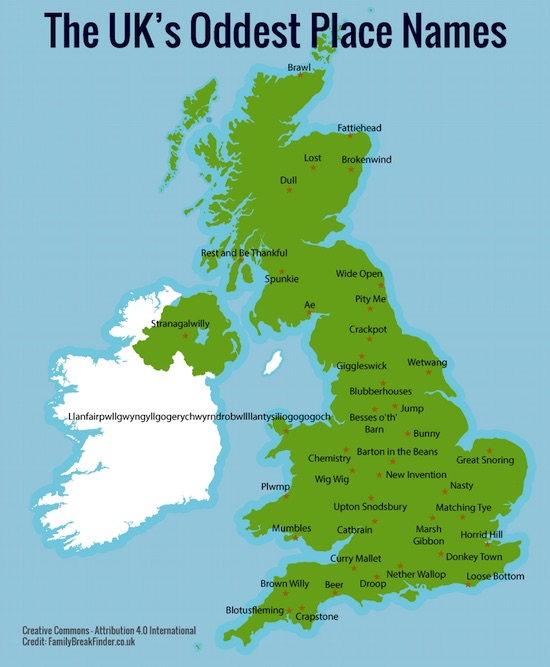
Salvador Dali Back the girl 1926

In 2018, Twitter was doing fine with the same amount of people they now employ. What was the rest doing? Just censoring?


Shadow ban
Can confirm – Twitter shadowbanned pic.twitter.com/kpLeeB3E7p
— Project Veritas (@Project_Veritas) December 9, 2022

Zelensky
Never deleting this app pic.twitter.com/Y0EOVsRBUW
— Dr. Parik Patel, BA, CFA, ACCA Esq. (@ParikPatelCFA) December 7, 2022

@CelineDion reveals she has ultimately been diagnosed with Stiff Person Syndrome. This is a known vaxx side effect that Pfizer kept quiet until the court forced them release the side effects in the first Pfizer dump.

Tucker board
Censorship plans of Disinformation Board exposed pic.twitter.com/g1V081sgHf
— Wittgenstein (@backtolife_2023) December 8, 2022



Christine Anderson
https://twitter.com/i/status/1599487419530629120


Interesting discussions on Twitter about Twitter. Much more to come. It’ll be hard on Elon too. For instance, he tweeted that Twitter doesn’t employ the Perkins Coie law firm. And then someone sends a Dec. 8 paper that says it does. How now?
• Second Wave Of Twitter Docs Reveal ‘Blacklists’ And ‘Shadow Bans’ (JTN)
Former New York Times editor Bari Weiss on Thursday released internal documents on Twitter’s censorship efforts and detailed the creation of blacklists and use of shadow ban technique to throttle “disfavored” tweets. Last week, Musk released information on the company’s censoring of the Hunter Biden laptop story via alternative journalist Matt Taibbi. Thursday’s dump came through a team of reporters Weiss led and to whom Musk granted broad access to the company’s files to investigate on condition they first publish their findings on Twitter. “[T]eams of Twitter employees build blacklists, prevent disfavored tweets from trending, and actively limit the visibility of entire accounts or even trending topics—all in secret, without informing users,” Weiss posted in the first of a series of tweets.
Weiss subsequently outlined how conservative personalities or individuals with “disfavored” positions would end up on internal blacklists to stunt the spread of their messaging. Talk-show host Dan Bongino was featured on a “search blacklist” while Turning Point USA founder Charlie Kirk’s account was set to “Do Not Amplify,” Weiss detailed. COVID-19 lockdown critic Dr. Jay Bhattacharya of Stanford University wound up on a “trends blacklist” that prevented his tweets from featuring on the website’s trending section. Weiss then recalled prior comments from Twitter executives denying that the company used shadow bans to stifle traffic on accounts without their knowledge.
“We do not shadow ban. And we certainly don’t shadow ban based on political viewpoints or ideology,” said then Head of Legal Policy and Trust Vijaya Gadde and Head of Product Kayvon Beykpour in 2018. Weiss then outlined testimony from Twitter engineers detailing an identical process the company termed “Visibility Filtering” in which the platform would quietly limit the reach of specific posts. VF decisions would go through the Strategic Response Team — Global Escalation Team Weiss explained, which she said often handled up to 200 cases per day. She further asserted that a secret dubbed “Site Integrity Policy, Policy Escalation Support” included top-level officials who made the biggest decisions. Weiss asserted that former CEO Jack Dorsey participated in the group’s deliberations.


‘If I was a strategic thinker in the non-western world I would be thinking about what to do with my US dollar reserves..’
• Saxo Bank Predictions Warn Of A Wild 2023 (Spears)
From Russia’s invasion of Ukraine to a British prime minister being ousted after six weeks, it has been a year of shocking events. More volatility lies ahead if Saxo Bank — whose previous annual list of ‘outrageous predictions’ did not see those two coming — is accurate with its prophecies for 2023, which include the reversal of Brexit and the end of dollar dominance. Some of Saxo Bank’s predictions are more outrageous than others, admits Steen Jakobsen, chief investment officer, who has been overseeing the annual project for more than 20 years. He says the most likely prediction of Saxo’s 10 for 2023 could see the US dollar’s dominance assailed by concerted action among non-Western countries.
Russia’s invasion of Ukraine led to the ‘US weaponising the US dollar,’ as part of the sanctions response, says Jakobsen. ‘If I was a strategic thinker in the non-western world I would be thinking about what to do with my US dollar reserves going forward.’ Oil-producing nations could agree with large consumers such as China and India to do deals in a new reserve asset, leaving the dollar behind. Saxo’s possible scenario sees non-US allied countries create an international clearing union (ICU) and a new reserve asset. Based on an idea by economist John Maynard Keynes after the Second World War, the idea would make the purchasing price for oil more stable in currency terms. ‘Why would Saudi Arabia and China do deals in dollars?’ adds Jakobsen. He believes it would be a natural move ‘at a time when the US has stepped back from being a world policeman.’
Saxo’s predictions suggest a splintering world in which national economies ‘shift into War Economy mode, where sovereign economic gains and self-reliance trump globalisation.’ But closer regional links are also foreseen, most notably in the UK, which votes to ‘un-Brexit’ and rejoin the EU in the wake of economic turmoil and political demonstrations. Jakobsen does not think Rishi Sunak’s more measured approach as prime minister will be any more effective than predecessor Liz Truss’s attempts to create a laissez-faire economy. ‘Neither is going to do anything for the debt or inflation (problems) in the UK,’ he says. ‘Maybe this leads to dissatisfaction, demonstrations and ultimately an election which will see Labour come in. Maybe the Liberal Democrats show up as a Europe-friendly party, (popular) with young people in particular.’

Merkel made clear that the “collective west” spent years trying to create a war with Russia. It’s that simple.
A tribunal would have no effect. Because all tribunals these days listen to only one side. A “Russian war crimes tribunal” will exclude Ukraine war crimes. Useless. Or worse.
• Merkel’s ‘Confession’ May Be Ground For Tribunal – Moscow (RT)
A confession by former German chancellor Angela Merkel regarding the true nature of the Minsk agreements – a roadmap for peace in Ukraine that was brokered by Berlin – could be used as evidence in a tribunal involving Western politicians responsible for provoking the ongoing conflict between Moscow and Kiev, Russian Foreign Ministry spokeswoman Maria Zakharova has said. The former German leader admitted in an interview with Die Zeit on Wednesday that the actual purpose of the Minsk agreements was to give Ukraine time to prepare for a military confrontation with Russia. “They talk a lot about legal assessments of what is happening around Ukraine, certain tribunals and so on in all sorts of ways,” Zakharova said during a media briefing on Thursday. “But this is a specific reason for a tribunal.”
She claimed that Merkel’s comments were nothing short of the testimony of a person who had openly admitted that everything done between 2014 and 2015 was meant to “distract the international community from real issues, play for time, pump up the Kiev regime with weapons, and escalate the issue into a large-scale conflict,” Zakharova added. She said Merkel’s statements “horrifyingly” reveal that the West uses “forgery as a method of action,” and resorts to “machinations, manipulation and all kinds of distortions of truth, law and rights imaginable.” The spokeswoman claimed that the West had known well in 2015, when it spent hours negotiating the second part of the Minsk accords, that it would never even attempt to fulfill any part of the agreements and would instead pump weapons into Kiev.
“They did not feel sorry for anyone: women, children, the civilian population of Donbass or the whole of Ukraine. They needed a conflict and they were ready for it back then, in 2015,” Zakharova said. Earlier this month, a number of Western officials called for the creation of a special UN-backed court to investigate alleged war crimes committed by Russia during its ongoing military campaign in Ukraine. The Kremlin has said the West has no legal or moral right to set up any courts to investigate or prosecute Russia over the conflict, which Moscow claims was ultimately provoked by the US and its allies.

“She also said that Zelensky should watch his back, considering last week’s visit to Ukraine by Victoria Nuland..”
• US Trying To Make Ukraine Conflict Last For Years – Russia (RT)
US arms procurement documents show that Washington intends to fuel the conflict in Ukraine for at least three more years, Russian Foreign Ministry spokeswoman Maria Zakharova has said. Ukrainian President Vladimir Zelensky should take notice of it when assessing the future of his country, she added. “Washington plans to fuel hostilities in Ukraine at least till the end of 2025. That’s what their plans are, judging by documents, which they don’t hide from anybody,” the Russian diplomat told journalists during a briefing on Thursday. Zakharova was referring to a contract for Raytheon’s National Advanced Surface-to-Air Missile Systems (NASAMS), which the Pentagon announced last week.
The US Army will buy $1.2 billion worth of hardware for Ukraine, according to the announcement, with an estimated completion date in late November 2025. The US, which pledged to provide military assistance to Kiev for “as long as it takes” to defeat Russia, previously supplied this type of anti-aircraft system to Ukrainian troops. Advisors to President Vladimir Zelensky should tell him about the procurement timeline, Zakharova suggested, so that he didn’t promise his people that the conflict would end next year, as he did this week. “Washington has different plans. There is a lot of money to be embezzled” through Ukraine aid programs, she alleged. Zakharova claimed that Western assistance was “a corruption marathon” going from the White House to Kiev and back again and profiting grifters on a global scale.
She also said that Zelensky should watch his back, considering last week’s visit to Ukraine by Victoria Nuland, a veteran US diplomat, whom Zakharova called “a harbinger of tragic shocks, caused by the Washington-orchestrated bloody putsch” of 2014. “A new palace coup may be in the making or some other reshuffle. I believe the Zelensky regime, which has repeatedly tested Washington’s patience, has some things to consider,” she remarked, adding that the US didn’t care who was in power in Kiev. Nuland, who served as US Assistant Secretary of State for European and Eurasian Affairs in 2014, was recorded discussing with then-US Ambassador to Kiev, Geoffrey Pyatt, the composition of the post-coup Ukrainian government. The private conversation was leaked online by unidentified parties. Her preferred candidate for prime minister subsequently got the job.

“Zelensky knows when all this can end, it can end tomorrow if desired..”
• Kremlin Explains When Ukraine Conflict May End (RT)
Ukrainian President Vladimir Zelensky knows that if desired the fighting between Moscow and Kiev could end at any moment, Kremlin spokesperson Dmitry Peskov said during a press call on Thursday. “You can talk about when all of this will end until you are blue in the face,” Peskov said in response to the Ukrainian president’s recent prediction that the conflict could be over next year. “Zelensky knows when all this can end, it can end tomorrow if desired,” the spokesperson added. In a recent interview with Politico – which named him ‘the most powerful person in Europe’ – Zelensky stated that Ukrainians “will be the most influential next year, but already in peacetime.”
Meanwhile, Russian President Vladimir Putin said on Wednesday that Moscow’s military operation in Ukraine could turn out to be a “lengthy process” because achieving all of Russia’s objectives could take quite some time. Earlier, the Russian leader also said that it was wrong to talk about the timing of the special operation or try to adjust it. He noted that it was impossible to set an exact date for when the conflict could end because the fighting is still intense. “We are working calmly, the troops are moving, reaching the lines that are set as tasks. Everything is going according to plan,” Putin said back in June.

“[Zelensky] can’t go forward with full peace negotiations with Russia, with Putin, unless America has his back..”
• Bandera’s ‘Insurgency-in-Waiting’ (Robeson)
In early February 2022, a couple weeks before Putin’s invasion, Ragozin observed, “While downplaying the risk of a Russian offensive and even reprimanding the West for sowing panic, the Ukrainian leadership appears preoccupied with a different threat – that of a coup.” In the same article (“What is Zelenskiy afraid of?”), he described the “Capitulation Resistance Movement” as “a radical street force dedicated to toppling Zelensky” and “a paramilitary force associated with the nationalist opposition that coalesced around former president Petro Poroshenko.” Nationalists officially launched the “Capitulation Resistance Movement” (Rukh Oporu Kapitulyatsiyi, ROK) in October 2019 to sabotage Zelensky’s peace mandate after the political newcomer crushed Poroshenko and his political party in elections held earlier that year.
“No Capitulation” became the slogan of a broader, far-right-led campaign against Zelensky and his government, with protests typically spearheaded by the neo-Nazi Azov movement and the ROK. “Zelensky ran as a peace candidate,” and the hardliners vigorously opposed him, the late Russia expert Stephen F. Cohen explained to journalist Aaron Maté that month. “He won an enormous mandate to make peace. So, that means he has to negotiate with Vladimir Putin.” But there was a major obstacle. Ukrainian fascists “have said that they will remove and kill Zelensky if he continues along this line of negotiating with Putin… His life is being threatened literally by a quasi-fascist movement in Ukraine.” Peace could only come, Cohen stressed, on one condition. “[Zelensky] can’t go forward with full peace negotiations with Russia, with Putin, unless America has his back,” he said.
“Maybe that won’t be enough, but unless the White House encourages this diplomacy, Zelensky has no chance of negotiating an end to the war. So the stakes are enormously high.” That was three years ago. After Russia invaded, the ROK became the FURM, or the Free Ukraine Resistance Movement, which has mostly flown under the radar. After interviewing a representative of the FURM in early March, a neoconservative US journalist referred to the “Resistance Movement” as an “insurgency-in-waiting, one of many, no doubt, that plans to resort to guerrilla warfare in the event that Russian President Vladimir Putin’s attempted conquest of Ukraine turns into a prolonged occupation of major population centers.”
After keeping tabs on this “quasi-fascist” movement for a few years (although it mostly went dark after Russia invaded), I feel comfortable speculating that the ROK was partially responsible for making Zelensky feel that negotiating peace with Russia would be too dangerous for him. I also suspect that once Putin declared war, Zelensky as an actor felt his only choice was to become an action hero, not just to rally international support for his country, but to become so popular in Ukraine and the West to rule out a coup d’etat.

“The New York Times has even referred to the unit as the “celebrated Azov Battalion.”
• ADL: Ukraine’s Azov Battalion No Longer ‘Far-right’ (GZ)
A November 9 email from the Anti-Defamation League to The Grayzone provided a twisted defense of Ukraine’s Azov Battalion. Despite its self-proclaimed “anti-hate” mission, the ADL insisted in the email it “does not” consider Azov as the “far right group it once was.” The Azov Battalion is a neo-Nazi unit formally integrated into the US government-backed Ukrainian military. Founded by Andriy Biletsky, who has infamously vowed to “lead the white races of the world in a final crusade…against Semite-led untermenschen,” Azov was once widely condemned by Western corporate media and the human rights industry for its association with Nazism. Then came the Russian invasion of Ukraine in February 2022.
In the months that immediately followed, Azov led the Ukrainian military’s defense of Mariupol, the group’s longtime stronghold. As the militia assumed a frontline role in the war against Russia, Western media led a campaign to rebrand Azov as misunderstood freedom fighters while accusing its critics of echoing Kremlin talking points. The New York Times has even referred to the unit as the “celebrated Azov Battalion.” Like the Washington Post and other mainstream outlets, the ADL ignored Azov’s atrocities this April in Mariupol, where locals accused the group of using civilians as human shields and executing those who attempted to flee. One video out of Mariupol showed Azov fighters proudly declaring the Nazi collaborator and mass murderer of Jews, Stepan Bandera, to be their “father.”
The Azov Battalion has long served as a magnet for the international white nationalist movement, attracting recruits from the terrorist Atomwaffen Division to a US Army Specialist arrested on charges of distributing bomb-making instructions. Back in March 2022, just a month before the battle of Mariupol, the ADL itself issued a report acknowledging that white nationalists see Azov “as a pathway to the creation of a National Socialist state in Ukraine.” Eight months later, however, the ADL has changed its tune, asserting to this outlet that Azov has rooted the fascists from its ranks. So did Azov change its Nazi ways, or did the ADL simply shift its messaging to conform to the imperatives of a Biden administration still intent on sending billions in military aid to Ukraine?

Does Borrell work for Raytheon? His spending demands will make Europe a lot poorer…
• EU Lacks ‘Critical Defense Capabilities’ – Borrell (RT)
Europe must begin to take more responsibility for its own security, EU foreign policy chief Josep Borrell has said, announcing that total expenditure by member states will grow by €70 billion over the next three years. Speaking at the ‘Investing in European Defence’ forum on Thursday, Borrell, who also heads the European Defence Agency (EDA), called on European nations to cooperate more on upping defense capacities in the common interest of bloc security. They should also look past the current conflict in Ukraine and anticipate “future threats.” Borrell said states’ spending on defense had surpassed the €200 billion-level in 2021 for the first time, though they’re still playing catch-up. “After the Cold War, we shrunk our forces to small-size armies without coordination … We lack critical defense capabilities,” he said.
“We have to compensate for years of underspending.” “Total defense expenditure that Member States have announced will grow by another €70 billion in the next three years,” Borrell said, adding that “people don’t fight with banknotes.” Borrell said Brussels faced a challenge to spend the money “in a coordinated manner” and that national decisions should not be focused solely on present needs, an apparent reference to the turmoil in Ukraine. If the focus remains only on current requirements, Europe will once again be faced with “a fragmented European capability landscape,” he warned. The top diplomat said a balance must be found between responding to current needs and preparing for future threats. Those threats are “close by and likely to get worse,” he said.
The EU has committed around $2.5 billion in weapons to Ukraine since Russia’s offensive began in February. Borrell’s pledge comes as European nations are running out of weapons to give Ukraine as they see their own stocks dwindling. The constant transfers of weapons to Ukraine has left most NATO nations’ stockpiles strained, according to a New York Times report last month, which said the bloc’s smaller nations had “exhausted their potential” and at least 20 of NATO’s 30 members were “pretty tapped out.” Politico reported last week that France unofficially admitted it has run out of weapons to send Kiev due to the state of its own supplies, while Germany also faces a €20-billion shortfall in ammunition.

“..wondering how a fixed price would work in a market that trades oil on a forward floating basis against international benchmarks..”
• The Russian Oil Price Cap Isn’t As Simple As It Seems (OP)
The $ 60-per-barrel price cap on Russian crude oil, which came into effect on Monday, looks pretty straightforward. Buyers paying $60 or less per barrel of Russia’s crude will have full access to all EU and G7 insurance and financing services associated with transporting Russian crude to non-EU countries. However, the physical oil market doesn’t usually see trades with fixed prices of crude – oil is being sold at a price premium or discount against the forward prices of the major international benchmarks such as Brent or the Oman/Dubai average. So, the price cap is much more complicated than a straightforward $60 per barrel ceiling. As a result, traders of physical oil cargoes are confused by the price cap on Russian crude, wondering how a fixed price would work in a market that trades oil on a forward floating basis against international benchmarks.
Physical oil traders, those who are willing to trade crude in compliance with the price cap, are also concerned that they could end up inadvertently violating the cap if, for example, the price of Russia’s flagship grade, Urals, with a discount to Brent, is higher than $60 per barrel weeks after the oil trade has been made. In such cases, traders would be stuck with above-$60 Russian crude that violates the price cap and would significantly limit access to EU/G7 tankers and maritime transportation services such as insurance and financing, oil traders tell Bloomberg. This could complicate the physical handling of Russian crude oil cargoes and hedging, they say. “Physical traders rarely trade on a fixed price,” John Driscoll, chief strategist at JTD Energy Services Pte Ltd, told Bloomberg.
“It’s a much more complex space where they trade on formulas and spot differentials to a benchmark crude for the trading of actual cargoes as well as for hedging that follows,” said Driscoll, who has more than 30 years of trading oil in Singapore. The price cap is not set in stone – it “is fixed for now but adjustable over time,” the EU said last week. A price revision would “take into account a variety of factors, which can include the effectiveness of the measure, its implementation, international adherence and alignment, the potential impact on coalition members and partners, and market developments,” the EU says. Even within the price cap, banks are generally wary of providing financing, industry officials told Global Trade Review this week.
Banks are concerned by the high compliance risk and fear they will have to increase scrutiny and due diligence to avoid being caught in a trade or deceptive shipping practices. Adding further confusion for physical oil traders is Russia’s position on the matter. Moscow says it will not trade its oil with countries that have joined the price cap. The EU says that “With the price cap, there are clear incentives for Russia, oil importing countries and market participants to maintain the flow of Russian oil. This will achieve both objectives at the same time.” But Russia says the price cap artificially limits prices—a mechanism Moscow will not accept.

In times of plenty, incompetence tends to remain hidden. But today, almost everyone working in European institutions turns out to be incompetent. They’ve been selected not for their skills, but for loyalty to some ideology or another.
• “People Are Losing Faith In This Institution”: ECB Staff (ZH)
This one is just too funny to pass by: having watched as their incompetent and clueless “leaders” sparked the biggest surge in European inflation since Weimar, crushing the purchasing power of ordinary people across the continent, it is only when their own purchases were suddenly threatened that the ECB’s rank and file decided to make some noises. According to the FT, workers at the world’s biggest hedge fund (or at least it was until the Euro hit parity), known as the European Central Bank, will discuss protest action and even potential strikes after rejecting a pay offer well below the rate of eurozone inflation, a union official has warned. The ECB’s proposal to increase pay by “only” 4.07% in January is – hilariously enough – consistent with the bank’s own opposition to deals that link wages to inflation that it believes risk fuelling a damaging wage-price spiral.
There is just one problem: its own employees think Christine Lagarde – herself a multimillionaire who barely avoided jail time despite being a convicted felon – is full of it and demand much higher pay… which if extended to all European workers will result without doubt in a wage-price spiral, as higher wages will mean higher prices, which mean even higher wages, and so on. The ECB’s latest pay offer, up from a 1.48% rise at the start of this year, is less than half what annual eurozone inflation is expected to be this year and will leave its staff with a significant pay cut in real terms (don’t tell them, but most Europeans won’t even get a 4.07% nominal wage increase: are they supposed to strike too). “People are losing faith in this institution,” said Carlos Bowles, vice-president of the Ipso union that represents ECB staff. “What the ECB leadership is telling us is ‘sorry we missed our own inflation target and now you, the staff, are going to pay the price’. “We really see an issue in the way the ECB stance is damaging the bargaining power of workers,” said Bowles.
“This is playing a role in increasing inequality.” Of course, that’s what we have been saying since 2009. But it was only when their own livelihood was on the line, did workers for Europe’s money printer figure it out too. A recent survey by the union found “the vast majority of colleagues are angry” about the ECB’s pay offer, he said. “The pay consultation is due to finish at the end of the year and we will decide in January if we protest.” The union reportedly met with the ECB’s ultra wealthy president Christine Lagarde – who doesn’t care what food costs, after all with the help of Bernard Tapie she embezzled enough to last her a lifetime – a few weeks ago and she made it clear there was no room for negotiation, he said. A strike, as happened at the ECB over pension reforms in 2009, was “not excluded” but it would only “come after an escalation curve”.

“In this age of cybersecurity and demands for ‘security by design,’ the FBI and law enforcement partners need ‘lawful access by design.’”
• FBI Sees ‘Threat’ In Apple Encryption Move (RT)
The FBI has issued a warning about upcoming security updates for Apple products, insisting the company’s plans to strengthen end-to-end encryption will interfere with efforts to track down criminals and terrorists. The agency sounded alarms soon after Apple announced several “advanced security features” set to be introduced in the coming months – including new protections for files stored in the cloud – telling the Washington Post it is “deeply concerned with the threat end-to-end and user-only-access encryption pose.” “This hinders our ability to protect the American people from criminal acts ranging from cyber-attacks and violence against children to drug trafficking, organized crime and terrorism,” an unnamed FBI spokesperson said in a statement on Wednesday.
“In this age of cybersecurity and demands for ‘security by design,’ the FBI and law enforcement partners need ‘lawful access by design.’” US and allied law enforcement officials have long demanded tech firms to provide open access to all devices, with the FBI frequently citing the aftermath of a 2015 terrorist attack in San Bernadino, California, when agents were unable to get into an Apple phone used by the shooter. Though the bureau pressed the company to help it break in, Apple refused, leading to a lengthy legal battle centered on encryption. Between 2015 and 2016 alone, Apple received at least 11 separate court orders to help police access various devices thought to be involved in criminal activity, but objected to all of them. A New York City court would later conclude that Apple could not be compelled to unlock its phones on the basis of the 1789 All Writs Act, which the FBI had repeatedly cited in prior cases.
Alongside agencies in the UK and Australia, the US Department of Justice has placed similar pressure on other tech giants in the past. In 2019, the three countries issued an open letter to Facebook CEO Mark Zuckerberg which argued that “companies should not deliberately design their systems to preclude any form of access to content.” Officials suggested encryption could interfere with investigations into “the most serious crimes,” effectively asking for the ability to crack any device at any time. Privacy advocates, including famed national security whistleblower Edward Snowden, have pushed back on the drive to undermine strong encryption, saying it is impossible to create a backdoor exclusively for law enforcement, and that any such security loophole will also be open to everyone, including bad actors.

How our impression of China is shaped. Read!
• The Coming Purge of the China-Hands (Pattberg)
There comes a time during or shortly after the academic training of every “Student of China” when he frequently runs into one of the many agents of Western anti-China state security. They are adverse hostile forces, they run a complete background-check on you, and then they‘ll make you a simple offer: You either produce anti-Chinese content for the West, or they‘ll mark you as anti-democratic and enemy of freedom, a traitor. In that case, you’ll never find work in the West again. And if you make a big fuss about it and cry coercion or blackmail, they are gonna start decomposing you. Like most young students back then, I, too, was completely ignorant about the inner workings of Western world hegemony. And, like the idiot I always was, I threw myself heedlessly into “China Studies” at a respective University in the United Kingdom, Edinburgh to be exact.
Immediately, the conceited profs and lecturers, they taught us the horrors of Han chauvinism, the horrors of Qing China and the horrors of the Maoists and the horrors against the poor people of Tibet, Hong Kong and Taiwan. When I looked it up, those were all former British colonies and/or places of interest to the British Crown. We were told LIES by the very British people whose soldiers raped, looted and colonized China, and were now angry that China somehow stood its ground and survived. I do not expect you to believe at first what I am about to tell you. I would not have believed it myself, back then I mean, before I joined some of the many “Studies” invented by the Western Empire of LIES. “China Studies” is not about China. It could be, but it is not. It is warfare against China. To keep China down. To sabotage her. To control her people and her history. In this war, it is the West or you perish.
Joining the enemy, China, is a capital crime. Have you ever wondered why there are no pro-China talking heads in the books, in the papers or on telly? It is because pro-China people in “China Studies” were the enemy. They didn’t make it through graduation, they weren’t hired, etc.. Our common sense is often betrayed by what sociologists call ‘the survivor bias’: We believe that since all we hear or read about China is negative, this must be sure proof that China is a very nasty place. What we fail to see, however, is that all the negative stuff we heard and read about China was the product of just 1 “China Studies” graduate for every 1,000,000 people or so of the general Western population. Nobody who was pro-China survived the selection process or came anywhere near central power.

“For many it was not in the increased number of homeless on the streets, or beggars huddled around tourist sites, or eye-wateringly high energy bills – although all of those existed before Russia’s invasion of Ukraine. ”
• The Fixed-pPice Shopping Basket: Greece’s Answer To Cost Of Living Crisis (G.)
Even before the cost of living crisis was formally pronounced, it had arrived in Greece. For many it was not in the increased number of homeless on the streets, or beggars huddled around tourist sites, or eye-wateringly high energy bills – although all of those existed before Russia’s invasion of Ukraine. “It was there for everyone to see on the supermarket shelves,” says Panagiota Kalapotharakou, who heads the consumer rights association Ekpizo. “Eighteen months ago there were so many products with price labels that a great number of Greeks could not afford. Costs were going up long before the war in Ukraine.” It came as little surprise for consumer groups, then, that when talk turned to the need for relief measures to counter rising inflation the government chose to focus on staple goods.
What emerged was the novel concept of the “household basket”: supermarkets agreed with the government to sell about 51 staples – from flour to fish – at fixed prices. The measure, thrashed out around a long mahogany table in the ministry of commerce, went into effect in early November. Officials in the centre-right government intend the scheme, scheduled to run to the end of the winter, as a bulwark for the most vulnerable against the inflationary storm. No government subsidies are involved. “We spent weeks sitting around this table working on it with supermarket market representatives and our competition committee,” says Sotiris Anagnostopoulos, the ministry’s fresh-faced general secretary. “In politics you have to anticipate what is coming next. The cost of living crisis is a huge challenge, maybe the biggest we have faced since the adoption of the euro.”
Nationwide chains have signed up to the programme, selling products under blue household basket labels. With the country’s annual consumer inflation rate currently at 10% – down from a high of 12% in September – the government insists the initiative has succeeded in stabilising prices at a time of uncertainty and, in some cases, driving them lower. “What was never expected was the price war that we have seen among the big supermarket chains,” says Anagnostopoulos. “It’s been a surprise and a pleasant one because in general Greeks have much lower purchasing power.” Forced to survive on some of the lowest wages in the EU – at less than €1,200 a month, the average monthly salary is about a quarter of that in Germany – Greeks have felt the impact of soaring prices perhaps more than other EU nations.

“Anyone who has downloaded a classified document from WikiLeaks, Cryptome or any other source, or posted it online is liable to prosecution under the Act..”
• Daniel Ellsberg: Indict Me Too (Lauria)
Pentagon Papers whistleblower Daniel Ellsberg has told the U.S. Justice Department and President Joe Biden that he is as indictable as WikiLeaks publisher Julian Assange for having unauthorized possession of classified materials before they were published by WikiLeaks and that he would plead “not guilty” because the Espionage Act is unconstitutional. Ellsberg revealed this week to the BBC interview program Hard Talk that Assange had given him the files leaked by U.S. Army intelligence analyst Chelsea Manning to keep as a backup before they were published by WikiLeaks in 2010. Assange has been charged with violating the Espionage Act for possession and dissemination of classified information and faces 175 years in a U.S. prison if he is extradited from Belmarsh Prison in London.
Ellsberg is the second figure this month to come forward calling on the U.S. government to indict them for the same reasons Assange has been charged. “Cryptome published the decrypted unredacted State Department Cables on September 1, 2011 prior to publication of the cables by WikiLeaks,” John Young wrote in a Justice Department submission form, which Young posted on Twitter last week. “No US official has contacted me about publishing the unredacted cables since cryptome published them,” he wrote. “I respectfully request that the Department of Justice add me as a co-defendant in the prosecution of Mr. Assange under the Espionage Act.” The 1917 Espionage Act does not exempt journalists from receiving and publishing classified information, which Ellsberg says is a clear violation of the First Amendment and should be challenged in the U.S. Supreme Court.
Anyone who has downloaded a classified document from WikiLeaks, Cryptome or any other source, or posted it online is liable to prosecution under the Act, which would include millions of people around the world. Receiving and publishing classified information is routine work for journalists at major publications. Five newspapers partnered with WikiLeaks to publish Manning’s material in 2010 but only Assange has been charged. Those five newspapers last week called on the Biden administration to drop the charges on Assange because of the threat to the First Amendment. The Obama administration declined to indict Assange in 2011 because it understood that it would also have to indict New York Times editors and reporters for having published the same materiel Assange did. That is the only material Assange was indicted for.
He was not charged for releases exposing Central Intelligence Agency hacking activities in 2016, though that so infuriated then C.I.A. Director Mike Pompeo that Pompeo later asked for plans to be drawn up to either kidnap or kill Assange while he was living under asylum in Ecuador’s London embassy. The Trump administration then had Assange arrested and charged under the Espionage Act in 2019. Despite being part of the Obama administration, Biden has refused to drop the case. When those plans were first revealed at Assange’s extradition hearing in 2020, Ellsberg said that the government was treating Assange worse than he had been treated and that it should have set Assange free.


“..all other news outlets around the country reported feeling “lost” as they were so used to just copying and pasting from the New York Times each morning.”
• Disinformation Down 92% As NYT Writers Go On Strike (BBee)
Researchers are reporting that disinformation on Twitter, Facebook, and mainstream news sources is already down by 92% in the wake of a 24-hour writer’s strike at the New York Times. “We always wondered where all this harmful disinformation was coming from,” said Darryl Ball, a researcher with the Center for Combatting Bad Things Online. “Turns out, it was all coming from those knuckleheads at the Times. Who knew?” Several studies indicate the country has seen a sharp decrease in hate speech, foreign propaganda, and shockingly dumb hot takes since the entire writing staff walked out of the building in New York City, which experts believe could lead to an outbreak of peace and harmony across the nation.
“All this time, the threat to democracy was us all along!” said NYT Union Boss Fuggs Crullers to reporters from other news organizations not on strike. “We have begun negotiations with leadership to pay us more money to never come back to work in hopes of saving America.” At publishing time, all other news outlets around the country reported feeling “lost” as they were so used to just copying and pasting from the New York Times each morning.





Paul Marik
'It's An Outrage'
"If early treatment was adopted in Mar/Apr '20, we would have saved 100s of 1000sof lives,"
-Dr. Paul Marik"It's a moral, ethical medical outrage, that we weren't allowed to treat patients w/ safe, effective, cheap, drugs – in favor of big pharma control" pic.twitter.com/3BpTqC7wCb
— New World Odor™ (@hugh_mankind) December 8, 2022





Tucker dreamers
There is new reporting that Democrats and several Republicans are working on a deal to pass amnesty for millions of illegal migrants before the new Congress can take over. This is an actual effort to disenfranchise American voters.https://t.co/L9L2DYMU9N pic.twitter.com/rWD2qfdyky
— Tucker Carlson (@TuckerCarlson) December 7, 2022



Referee
https://twitter.com/i/status/1600902123486470145

Polar bear cub
Polar bear and her cub. Video by Ruth Elwell Steckpic.twitter.com/oPrjmUIwUZ
— Fascinating (@fasc1nate) December 7, 2022


Support the Automatic Earth in virustime with Paypal, Bitcoin and Patreon.










Home › Forums › Debt Rattle December 9 2022